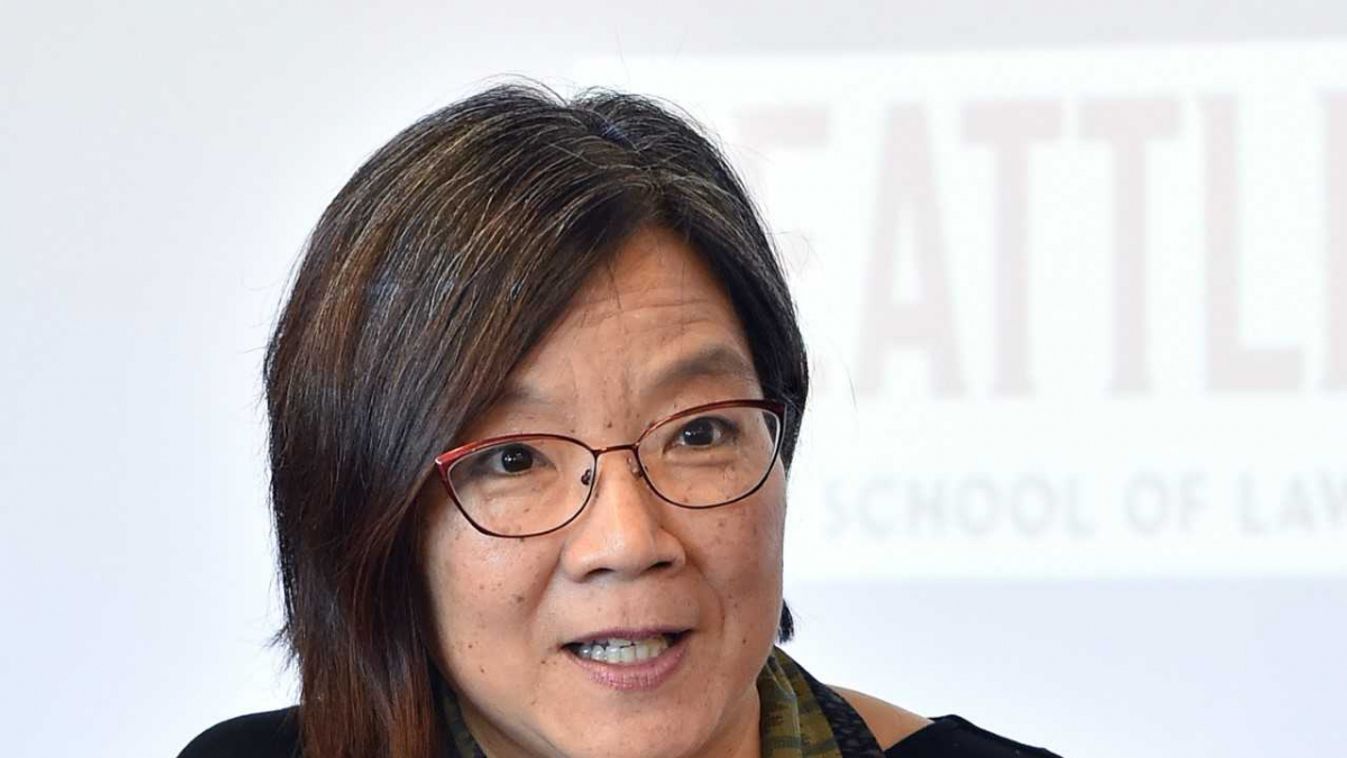The "Woke" Is Tearing Down Our Universities and Traditions

"The relative peace and prosperity currently enjoyed in the West is exceptional. It is also fragile. If you start hammering away at it, you may not like what emerges in its stead".

The patent regime is designed to encourage invention and creation, and to strengthen the knowledge base of the public over time. However, newer ways of extracting revenue from patents are not what patents are intended to do, which is to incentivize innovation rather than suppress competition – Margaret Chon, Professor of Law at the Seattle University School of Law, pointed out in a conversation with Lénárd Sándor.

The Coronavirus disease hit nearly every country around the World testing the courage and ability of their respective governments. At the same time, a real race began among countries and businesses to develop the vaccine that can remedy and prevent the devastation of the pandemic. I am wondering though what kind of patent rights would the inventor be entitled. In the satirical cold war movie, Dr. Strangelove, Captain Mandrake wanted to initiate a world saving telephone call to the President of the US. Although the biggest worry was who will answer to Coca-Cola for breaking its machine to get some changes for the call. Under today’s patent regime, who in your view will most benefit from the vaccine: the population or the business entity that holds the patent right?
The current Covid-19 pandemic provides a good stress test for the global pharmaceutical innovation system. Prior to this pandemic, one could identify certain clear market failures associated with vaccine development, mostly because R&D for these kinds of pharmaceuticals is not generally profitable (or at least not as profitable as so-called blockbuster drugs) even though vaccines are incredibly important for preventing infectious diseases. However, the urgent need for a Covid-19 vaccine means that
we are witnessing a global vaccine race (and therefore a patent race), involving not just for-profit pharmaceutical firms, but also governments and nonprofits.
While I am not a futurist, these pandemic conditions will allow us to assess the strengths and weaknesses of patents as tools to incentivize innovation. In general, patents are viewed as market-based mechanisms for generating innovative products. However, in the health innovation space, and especially pharmaceutical innovation, the market-based mechanism of patent law intersects with public interests such as public health, as well as with public funding, and therefore even perhaps public ownership.
It will be interesting to see whether governments will step up and exercise compulsory licensing more than they have in the past, in order to procure sufficient Covid-19 vaccines, diagnostics, and therapeutics for their populations.
Some countries such as Canada, France, and Germany have already put in place special compulsory licensing mechanisms to allow their governments to exercise broader powers in this area than they typically do over drugs. And early indications are that the pharmaceutical firms are extremely aware that price-gouging in the current environment would not be a good public relations decision.
As you mentioned patents are market based mechanisms that are designed to incentivize innovations. However, according to the memorable words of the late Abe Fortas, Justice of the US Supreme Court, “a patent is not a hunting license”. What in your view are the major competing interests in the creation of a balanced patent regime?
Yes, that famous quote is from a case interpreting the utility requirement for patentability, which is supposed to ensure that a patented invention has some actual, specific benefit. You can see the importance of this requirement under section 101 of the US Patent Act (which can be seen in TRIPS Article 27’s requirement of “capable of industrial application”), for example, in the case of Theranos, a biotech start-up firm involved in alleged massive investor fraud. The Theranos patents were arguably not rigorously examined by the patent office but were used instead as a ‘hunting license.’
More generally, the patent system’s imbalances go far beyond weak patents and overwhelmed patent examiners. Patents represent a social contract, whereby society gets disclosure of the invention in exchange for a reward of a patent for a limited period. The system is designed to encourage invention and creation, and to strengthen the knowledge base of the public over time.
But the patent system is now regularly used to game the markets, whether through so-called patent assertion entities (or patent trolls) that threaten smaller market participants or the deployment by large firms of huge patent portfolios as assets to maintain market dominance.
These newer ways of extracting revenue from patents are not what patents are intended to do, which is to incentivize innovation rather than suppress competition. Underneath all of these newer developments is the enormous increase in the scope of patent rights mandated by the WTO TRIPS agreement in 2005 and by subsequent free trade agreements.
The system is seriously asymmetrical in favor of private interests (patent holders) rather than countervailing public interests.
What you are saying is all the more true since the modern technology and industry including biotechnology, molecular diagnostics and medical technology are increasingly science-oriented. One invention is based on the other. In other words, one fundamental condition of industrial development – that is also a public interest – is the continuous progress of intellectual achievements. I am wondering that under these circumstances a monopolistic – or neoliberal type – patent regime can remain the main thrust of industrial development. What in your view would be a more optimal balance between the rights of the inventor and the public interests?
All intellectual property rights have exceptions and limitations. For example, patent rights are subject to experimental use exceptions or working requirements. Making these exceptions more robust would be a good start to rebalancing the system. In the U.S., for example, the research or experimental use exception to patent rights is very narrow and could be broadened much more, especially with regard to upstream or basic research.
On the other hand,
the fair use exception to U.S. copyright has developed in the opposite direction, to accommodate new technologies arguably well. For example, the Google Books Project was sued twice by the Authors Guild for copyright infringement.
Ultimately the courts held that Google’s large-scale scanning of books was fair use and therefore not infringement of the publishers’ copyrights. The innovative uses by Google and its partner libraries – to engage in data/ text-mining and/or to provide books in accessible format for visually impaired readers – were fundamentally different from the original uses and potential markets for the print volumes. So I think that the U.S.-style fair use exception is a good example of a balanced IP regime that has been very successful in promoting innovation. It is important to note that the contours of the fair use exception are determined by courts, within a framework set by Congress. So civil law jurisdictions may not have this type of flexibility, since they typically have enumerated exceptions and limitations to IP.
How would you balance those interests in an area where legally protected social interests are also involved? If the innovation in question is an essential medicine or an equipment that provides for clean and safe water, food or improve the level of education, then the patent rights might be in conflict with human rights requirements. Can you shed some lights on this dilemma?
We must remember too that intellectual property consists of more than just patents. Copyrights, for example, can impact the provision of on-line education during this pandemic. Some countries including Hungary have amended their national laws to allow more liberality with regard to the provision of distance education, as this report shows. Because education is foundational to any other kind of human progress, many national governments will be faced with the same kinds of choices in their copyright regimes as we have already discussed with patents and Covid-19 drugs. I have written about some of the wiggle room in the international IP framework to allow for more educational exceptions to copyright within national laws.
In all areas of human endeavor, intellectual property law regulates the inputs – knowledge and applied technology. From the provision of health care and education to the mitigation of climate change and hunger, every single area of sustainable development is implicated. I see IP as something that does not stand alone as a specialized area of law. It is deeply embedded within development goals and the production of global public goods. Although human rights are an incredibly important framework for thinking about overall social welfare, I prefer to frame IP within sustainable and/or human development frameworks. We need more innovation to solve these big problems. For the sake of global policy coherence, the UN Agenda 2030, a blueprint for global action on different goals, allows us to plan specific ways in which IP’s innovation mandate can contribute to each of these different areas rather than to generate innovation largely through market-determined priorities. Ultimately, this approach aligns with the human rights approach, but it also accounts for the environment and non-humans impacted by our technological development.
I thank you so much for taking the time and energy to participate in the interview series and to share your instructive thoughts.
Thank you for this opportunity to share my perspectives with you.











